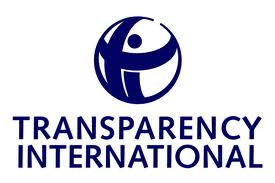 The International Cricket Council (ICC) must face up to the corruption risks both on and off the pitch that challenge the integrity of cricket by strengthening its own governance and by using its influence to promote high standards in national cricket boards, according to a new report from Transparency International, the global anti-corruption organisation.
The International Cricket Council (ICC) must face up to the corruption risks both on and off the pitch that challenge the integrity of cricket by strengthening its own governance and by using its influence to promote high standards in national cricket boards, according to a new report from Transparency International, the global anti-corruption organisation.
“Cricket has a proud tradition as a by-word for fair play. To keep that reputation the International Cricket Council must start to implement reforms that will strengthen transparency in cricket and address the many corruption risks that threaten the game,” said Deryck Murray, a co-author of the report Fair Play: Strengthening Integrity and Transparency in Cricket, and chair of Trinidad & Tobago Transparency Institute, the Transparency International chapter.
Although much of the focus of combatting corruption in cricket has been in the area of match-fixing, Transparency International considers it vital that if the message of zero tolerance for corruption on the pitch is to be taken seriously everyone in the game, including cricket administrators, have to operate to the highest standards of ethics and integrity.
Sport can shape social values, particularly with young people, which is why it is important that those running sport do all they can to protect its integrity.
The ICC has commissioned two recent governance reviews in the past two years but as yet there has been no update on whether the reforms they suggested have been implemented. We believe that the ICC should take the following steps as soon as possible to achieve greater transparency and accountability:
- publish information about its anti-corruption programmes and procedures
- increase the independence of the Board and Committees, by introducing independent nonexecutive directors
- publish progress reports of the implementation of the Woolf and de Speville reports
- oublish minutes and decisions of Board and Committee meetings.
Transparency International has sent a copy of the report to the ICC and its chapters in many of the world’s biggest cricketing nations will also send the report to their domestic cricket boards in an effort to stimulate debate and change.
